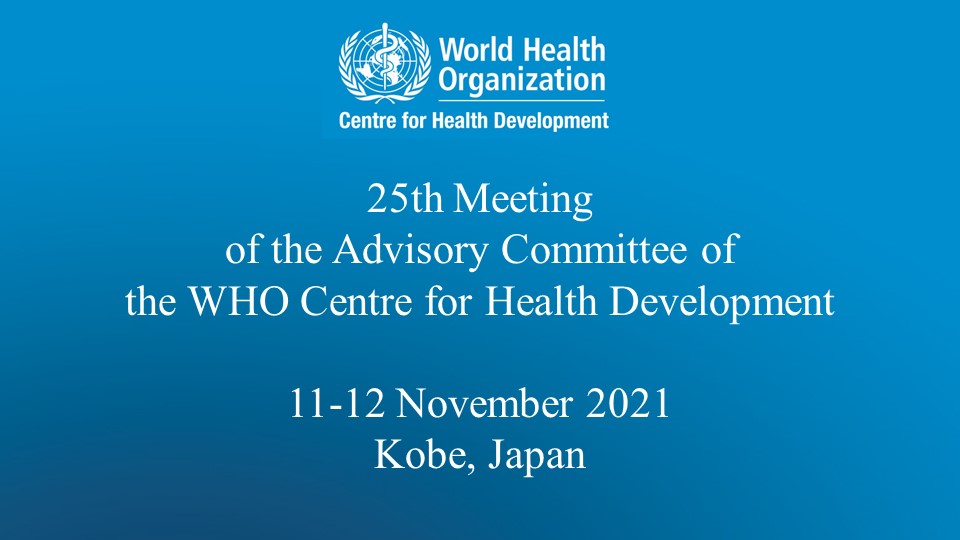Advisory Committee congratulates WHO Kobe Centre on impressive results

The Advisory Committee of the WHO Centre for Development in Kobe (WHO Kobe Centre - WKC) has commended the Centre for impressive progress in its research portfolio and local engagement, and excellent research achievements in the thematic areas of universal health coverage and health emergencies and disaster risk management. The 25th annual meeting was held online on 11-12 November 2021.
The Director-General of WHO appoints the Advisory Committee which comprises representatives from each of the six WHO Regions, the host country, the local area, and the Kobe Group.[1] The Kobe Group provides generous material and financial support to the work of WKC.
This year, WKC Director Dr Sarah Barber welcomed three new Advisory Committee members: Mr Yasutaka Katayama, Vice Governor of Hyogo Prefectural Government representing the Kobe Group; Dr Hajime Inoue, Assistant Minister for Global Health and Welfare in the Ministry of Health, Labour and Welfare (MoHLW), representing the host government; and Professor Reiko Sakashita, Vice President of the University of Hyogo representing the local community.
The Governor of Hyogo Prefecture, Honorable Motohiko Saito, expressed his gratitude to the WHO Centre for Health Development for providing evidence-based information on COVID-19 to the Prefecture and community. He was reassured that the Centre was working on ageing and dementia, given the urgent need in Japan to reform social systems in areas such as medical and long-term care and pensions.
Dr Inoue expressed his appreciation for the efforts of the Kobe Group and others in supporting the work of the WHO Kobe Centre over the past 25 years. The Ministry of Health, Labour and Welfare assured its support to WKC in its future action and work.
Dr Viroj Tangcharoensathien, Secretary General of the International Health Policy Program Foundation in the Ministry of Public Health, Thailand, said: “WKC’s work aligns extremely well with WHO’s 13th General Programme of Work (GPW13), which strengthens collaboration with WHO Headquarters and regional offices, particularly the European and Western Pacific Regions".
One such collaboration was with the European Observatory on Health Systems and Policies to develop a very practical, innovative tool, the Population Ageing financial Sustainability gap for Health systems (PASH) Simulator.
Professor Maged Al- Sherbiny, Higher Education Senior Advisor, Direct Aid International, Kuwait commented: “I fell in love with the PASH simulator which allows policymakers to see how both health expenditures and revenues are expected to change due to changes in population aging. It supports the finding that how population ageing affects health financing is a policy choice. I hope we can disseminate this message clearly to policymakers.”
[1] The Kobe Group comprises the Hyogo Prefectural Government, Kobe City, the Kobe Chamber of Commerce and Industry, and Kobe Steel Ltd.

